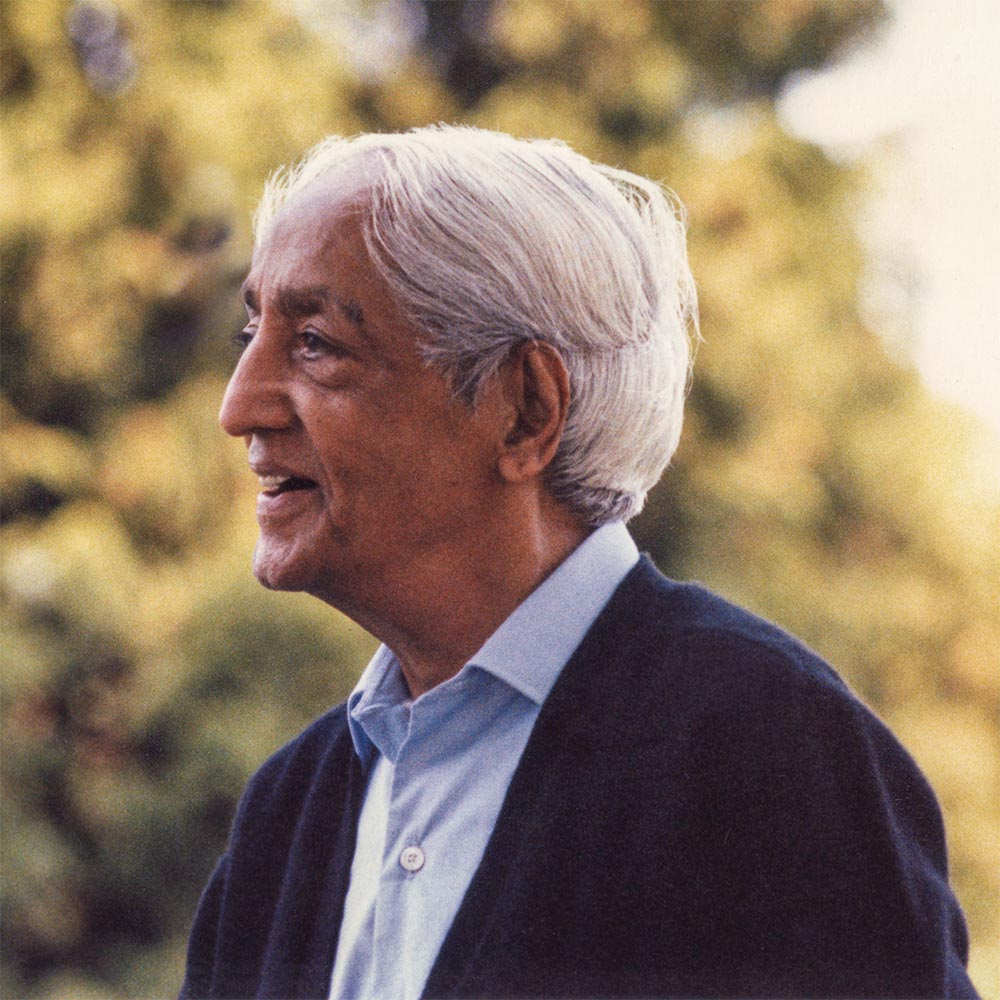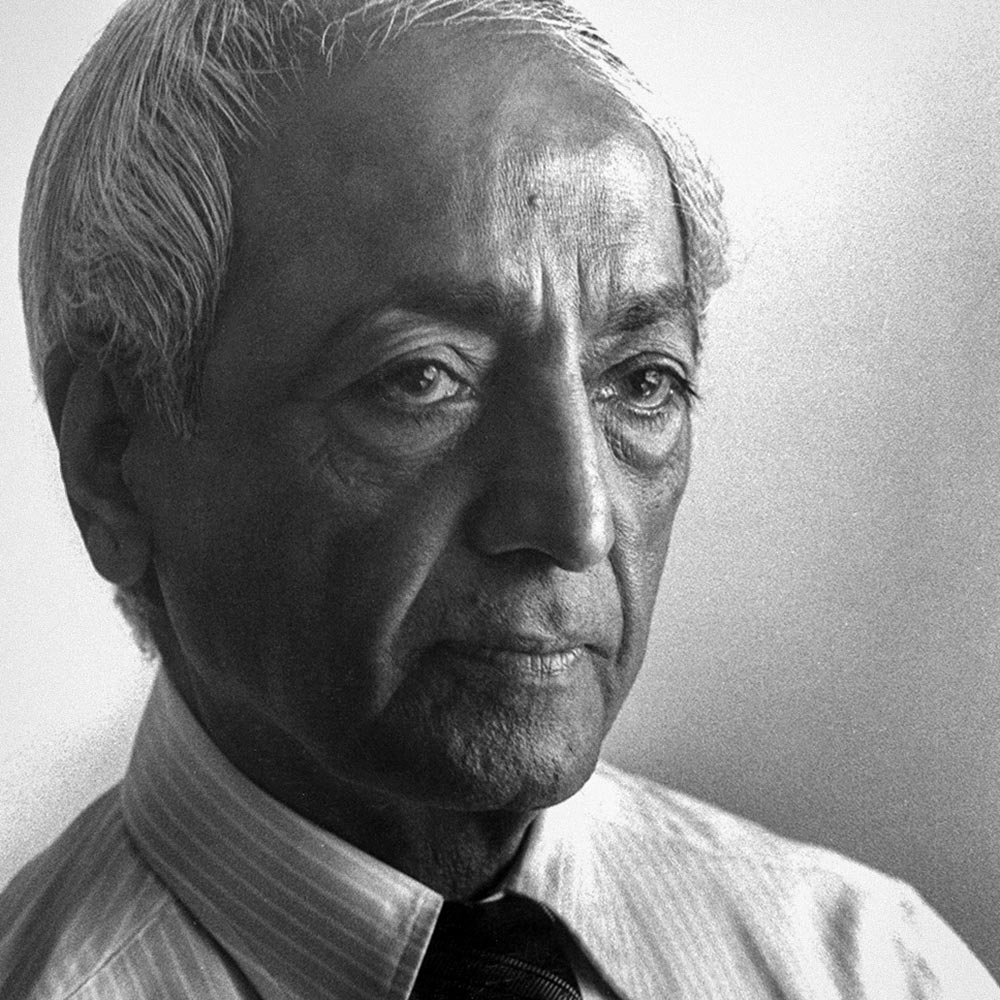It is becoming more and more important if we are to survive that there be a spirit of cooperation with the universe, with all the things of the sea and earth.
Krishnamurti, The Whole Movement of Life Is Learning
Read More
We as individuals have cooperated with our ancestors, who, with their forefathers, set in motion this process of hate, fear, greed, and so on.
Krishnamurti, What Are You Doing With Your Life?
Read More
There can be no cooperation if all your activities are self-centred and you are occupied with your own selfishness, with your own secret desires and pleasures.
Krishnamurti, The Whole Movement of Life Is Learning
Read More
In cooperation there is no suppression or subservience.
Krishnamurti, Can the Mind be Quiet?
Read More
The moment we discard authority, we are in partnership, and only then is there cooperation and affection.
Krishnamurti, Education and the Significance of Life
Read More
Cooperation is the fun of being and doing together – not necessarily doing something in particular.
Krishnamurti, Think on These Things
Read More
It is important to know when not to cooperate. If we are not wise, we may cooperate with the unwise, with ambitious leaders who have grandiose schemes, fantastic ideas, like Hitler and other tyrants through the ages.
Krishnamurti, Think on These Things
Read More
Cooperation must be one of the main concerns of any human being.
Krishnamurti, Can the Mind be Quiet?
Read More
Cooperation between teacher and student is impossible if there is no mutual affection, mutual respect.
Krishnamurti, Education and the Significance of Life
Read More
Relationship is absolutely necessary; otherwise, you cannot exist. Relationship means co-operation. Relationship means love and generosity.
Krishnamurti, How to Find Peace
Read More
You and I create a society in our relationship. Without that relationship, there is no intelligence; there is no cooperation.
Krishnamurti, How to Find Peace
Read More
When you love, you cooperate; you are not thinking of yourself. That is the highest form of intelligence.
Krishnamurti, The First and Last Freedom
Read More
If you want cooperation from your wife or husband, your child, or your neighbour, how do you set about it? You set about it by loving the person.
Krishnamurti, What Are You Doing With Your Life?
Read More
There can be cooperation only when you and I have no common aim created by thought. Cooperation is only possible when you and I do not desire to be anything.
Krishnamurti, The First and Last Freedom
Read More
Cooperation comes naturally and easily when we love what we are doing, and then cooperation is a delight.
Krishnamurti, Commentaries on Living 3
Read More
These quotes only touch on the many subjects Krishnamurti inquired into during his lifetime. His timeless and universal teachings can be explored using the Index of Topics where you will find texts, audio and video related on many themes. Another option is to browse our selection of curated articles or more short quotes. Krishnamurti’s reply when asked what lies at the heart of his teachings can be found here. Many Krishnamurti books are available, a selection of which can be explored here. To find out more about Krishnamurti’s life, please see our introduction and the biography. We also host a weekly podcast, and offer free downloads. Please visit our YouTube channel for hundreds of specially selected shorter clips. Below, you can learn more about Krishnamurti and our charity which he founded in 1968.

Who Was Krishnamurti?
J. Krishnamurti (1895-1986) is widely regarded as one of the greatest thinkers and religious teachers of all time. He spoke throughout the world to large audiences and to individuals, including writers, scientists, philosophers and educators, about the need for a radical change in mankind. Referring to himself, Krishnamurti said:
He is acting as a mirror for you to look into. That mirror is not an authority. It has no authority, it’s just a mirror. And when you see it clearly, understand what you see in that mirror, then throw it away, break it up.
Krishnamurti was concerned with all humanity and held no nationality or belief and belonged to no particular group or culture. In the latter part of his life, along with continuing to give public talks, he travelled mainly between the schools he had founded in India, Britain and the United States, which educate for the total understanding of man and the art of living. He stressed that only this profound understanding can create a new generation that will live in peace.
Krishnamurti reminded his listeners again and again that we are all human beings first and not Hindus, Muslims or Christians, that we are like the rest of humanity and are not different from one another. He asked that we tread lightly on this earth without destroying ourselves or the environment. He communicated to his listeners a deep sense of respect for nature. His teachings transcend man-made belief systems, nationalistic sentiment and sectarianism. At the same time, they give new meaning and direction to mankind’s search for truth. His teaching is timeless, universal and increasingly relevant to the modern age.
I am nobody. It is as simple as that. I am nobody. But what is important is who you are, what you are.
Krishnamurti
Krishnamurti spoke not as a guru but as a friend. His talks and discussions are based not on tradition-based knowledge but on his own insights into the human mind and his vision of the sacred, so he always communicated a sense of freshness and directness, although the essence of his message remained unchanged over the years. When Krishnamurti addressed large audiences, people felt that he was talking to each of them personally, addressing their own particular problem. In his private interviews, he was a compassionate teacher, listening attentively to those who came to him in sorrow, and encouraging them to heal themselves through their own understanding. Religious scholars found that his words threw new light on traditional concepts. Krishnamurti took on the challenge of modern scientists and psychologists and went with them step by step, discussing their theories and sometimes enabling them to discern the limitations of their theories.
Krishnamurti left a large body of literature in the form of public talks, writings, discussions with teachers and students, scientists, psychologists and religious figures, conversations with individuals, television and radio interviews, and letters. Many of these have been published as books, in over 60 languages, along with hundreds of audio and video recordings.

The Krishnamurti Foundation
Established in 1968 as a registered charity, and located at The Krishnamurti Centre, Krishnamurti Foundation Trust exists to preserve and make available Krishnamurti’s teachings.
The Foundation serves a global audience by providing worldwide free access to Krishnamurti videos, audio and texts to those who may be interested in pursuing an understanding of Krishnamurti’s work in their own lives.
In describing his intentions for the Foundations, Krishnamurti said:
The Foundations will see to it that these teachings are kept whole, are not distorted, are not made corrupt.

